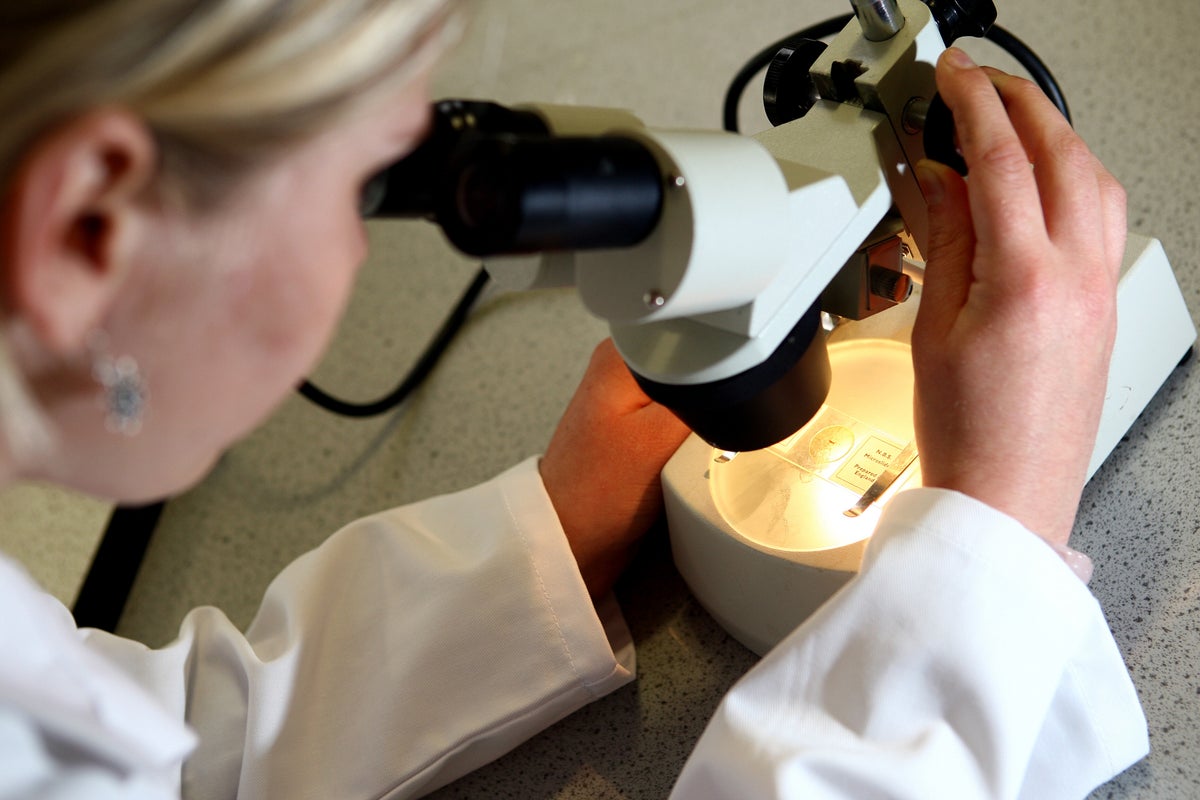The U.S. Food and Drug Administration has approved a second blood test to improve the detection of Alzheimer’s disease.
The “Elecsys pTau181 test” measures pTau181 protein levels in human plasma which act as a biomarker for the degenerative brain disorder.
The test is intended for patients, aged 55 and older, who show symptoms of cognitive decline.
It was made by Swiss biotech company Roche, and developed with weight loss drug-maker Eli Lilly. The makers say the test will help doctors more quickly identify patients who are in the early stages of mental deterioration.
“By bringing Alzheimer's blood-based biomarker testing into primary care, we can help patients and their clinicians get answers sooner to support them earlier in their journeys,” Roche Diagnostics North America CEO and President Brad Moore said in a statement.

Earlier this year, the FDA approved the Lumipulse blood test to help diagnose Alzheimer’s. That test, made by Japanese development company Fujirebio, looks for different protein biomarkers.
U.C. San Diego researchers recently discovered that increases in proteins in the blood, following brain inflammation and nerve cell damage, were tied to a decline in brain function and that new blood tests could help streamline early Alzheimer’s detection.
The “Elecsys pTau181 test” aims to expand options and access for both doctors and patients, Roche said. The company noted that a clinical study, with more than 300 participants, had shown its effectiveness by correctly identifying people who didn’t have Alzheimer’s signs in nearly 98 percent of cases.
The Alzheimer’s Association, the world's largest non-profit funder of research on the disease, said the Roche test will prevent unnecessary, specialized testing that can rack up expensive medical bills for patients.

“This is another important step toward expanding access to Alzheimer’s disease diagnostic tools,” Dr. Joanne Pike, the association’s president and CEO, said in a statement.
“At the same time, it is important to understand this test is designed to rule out the presence of amyloid plaques. It is not a test that will give an Alzheimer's disease diagnosis, nor is it a standalone tool for detection.”
Alzheimer’s is currently diagnosed using brain scans that look for specific hallmarks including the build-up of certain toxic proteins in the brain, and may take weeks or months to provide a diagnosis.
Dr. Richard Isaacson, who established one of the first Alzheimer’s prevention clinics in the country, told CNN that doctors will need more new blood tests to get a fuller picture of patients’ health in the future.
“This single Roche test is looking at pTau181 as a single protein marker. But for people who are at risk for Alzheimer’s, to truly have the best accuracy and the most granularity to understand what’s going on, we’re going to need a panel of tests. And then we’re going to need to follow these tests over time,” he said.
More than 7 million Americans are living with Alzheimer’s and some 500,000 are diagnosed with the disease each year. The number of cases is expected to nearly double in the next 25 years.

.jpeg)























.jpeg)













 English (US) ·
English (US) ·